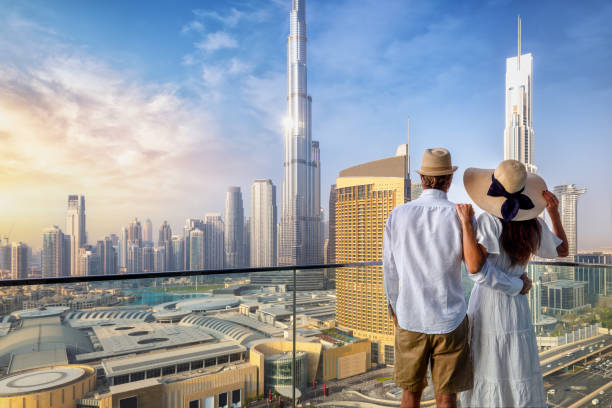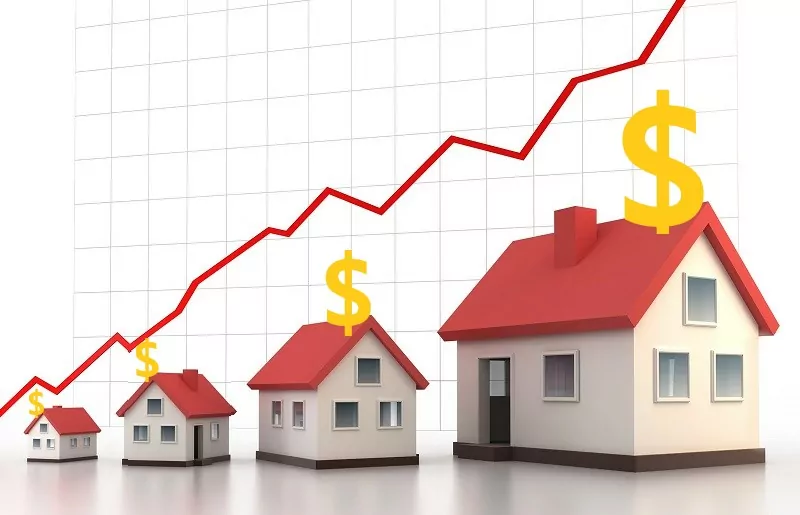Dubai’s Real Estate Projects are Shaping the Future
Understanding the Roots, A Look into the Background of Dubai’s Real Estate Market
The Dubai real estate market has long been the center of attention for the UAE’s policy of diversification. Dubai remains an attractive place to invest in property due to tax-free income, world-class infrastructure, and booming culture. The selection of the right property to lease in Dubai in the year 2025 is not merely a case of selection on strategic location but the assessment of demand for tenants and calculation of the return on investment (ROI). Investment in the property sector of Dubai is a highly feasible option for quick profit and appreciation of value in the long run. Moreover, with higher rental yields, master-planned worldwide connectivity, and a safe and stable regulatory environment and growth, Dubai is extremely well positioned as an international class investment destination.
Dubai’s real estate sector in 2025
Dubai property market is experiencing a miraculous expansion in 2025; such expansion is forging the futuristic urban life with vision and creative spark. The city is creating new world standards for smart development, sustainability, and popularity as an investment destination. Despite the fall in the average price of mortgages, mortgage expansion indicates more cash for buyers by high-net-worth individuals. Dubai’s reputation as a tax-free, secure, cosmopolitan city remains a magnet for foreign investors during times of global economic slump. Development of real estate projects like the Dubai Metro Blue Line, and the increasing focus on sustainability and smart living, are maintaining the city’s real estate in a wanted position at the top of the global property market.
Dubai’s Smart and Sustainable Living
Dubai is the front runner in smart technology and green practices of real estate development. It ranges from smart residences via AI to marketing property via blockchain. The city presents an age of sustainability and ease side by side.
Biophilic architecture and power-saving systems have become the standard, a wake-up call to healthier and more equitable living.
A Global Investment
Dubai attracted foreign capital and continues to attract investors worldwide, from high-net-worth individuals to far-off workers. There is 100% foreign freehold ownership of free zone businesses and long-term residence visas in return for investment. In real property transformed the city into a global capital center. Dubai is a highly rewarding and safe real estate market with a tax-haven lifestyle and robust legal system.
Infrastructure and Lifestyle Integration
The meteoric rise of Dubai as a city is not merely the result of image-defining skyscrapers and high-end property, it’s the result of a master plan for convergence of lifestyle and infrastructure. By 2025, the vision is much more compelling than ever as the city continues to invest in game-changing propositions that unite people and places, enhance quality of life, and fuel urban long-term sustainability. The hub in Dubai infrastructure plan is its world-class transport network. These residential cities incorporate extensive green parks with dense foliage, jogging and bicycle tracks and lake shores so that individuals can have access to all types of facilities. Wellness- focused developments are becoming increasingly trendy, with spas, gyms, and wellness resorts being integrated into residential buildings as a way of healthier living.
Sustainability commitment by Dubai is another facet of its infrastructure development.

Market Outlook of Dubai’s Real Estate Sector
Dubai property market in 2025 exhibits remarkable strength.
The steady expansion is among the world’s most dynamic and investor-favorable markets. Following the record-breaking trend in 2024, the trend has carried over to 2025 with prices of residential real estate projected to increase by 5–8% in prime sectors. All this growth is being counterbalanced by a combination of high demand for off-plan property, increased foreign investment, and a counterbalancing stream of high-net-worth individuals relocating to the city.
The government’s free-open policies and long-term residency visas tied to property ownership, 100% foreign ownership in designated areas, and a tax-free investment environment are continuing to attract global investors and end-users in equal proportions. Usually, rental yields are more attractive in emerging communities and luxury areas where demand exceeds the supply.
Moreover, Dubai’s focus on infrastructure, sustainability, and smart city initiatives has contributed to the long-term value of real estate assets making the market sustainable and future-proof. The balanced supply pipeline and transparency outlines that the Dubai market will continue to be on an upward trend with stability as well as the opportunity in a more competitive global environment. Dubai solidified its place on the global investment map by the energetic performance of its property sector in the first half of 2025. The city witnessed a total of 99,057 property transactions, which shows a growth rate of nearly 22.5% compared to last year reflecting strong investor enthusiasm and absorption across different market segments. The aggregate sales value came to AED 328.8 billion, marching ahead by an impressive 40.1% over last year, ultimately showcasing the city’s resilience as well as appeal amidst global economic uncertainties. Most of these were titled towards off-plan transactions with about 64,907 deals that summed up to AED 209.1 billion reflecting growth rates northwards close to about 43.2% on similar period comparisons with last year essentially underscoring increasing investor appetites for future developments while simultaneously pointing out confidence in Dubai’s long-term strategic infrastructure and urban development plans.
Unmatched ROI, Stability and Growth Why Dubai Is Every Property Investor’s Dream
Dubai has one of the highest rental yield returns in the world. This ranges between 6-8% for apartments and 4-6% for villas. Most international cities do not offer such high yields for example, Singapore, New York, or London have much lower yields. Dubai sweetens the pot with no capital gains tax or property taxes.
Why Is Dubai the Ultimate Destination for Property Investors?
Rental yields in Dubai belong to the highest category. Average apartment yields fall between 6-8%, and those of villas are about 4-6%. These mostly compare favorably with many global cities such as London, New York, or Singapore. Moreover, there is absolutely zero property tax in Dubai due to these net returns are maximized as no capital gain tax is applicable. Other than oil, the Dubai government typifies strong economic development catalyzed by tourism, finance, technology, and logistics sectors. This has elicited population growth while sustaining it due to expats and international professionals moving in. The freehold ownership that foreigners were granted since 2002 allows full property ownership by foreigners in designated freehold areas. To invest in Dubai, real estate investors will be eligible for residency visas like a 2-year extendable visa for properties worth AED 750,000+ and a 10-year Golden visa for properties worth 2 million AED.
The most desirable places to invest in are Downtown Dubai, Dubai Marina, Business Bay, Jumeirah Village, Dubai Harbor, and Palm Jumeirah.

Conclusion
Dubai’s real estate projects are a visionary and forward-thinking master plan for urban living in the future, and they are much more than mere architectural achievements. Each project is a well-thought-out response to the evolving needs of a global community that values innovation, sustainability, and interconnectivity very highly.
Dubai not only maximizes the functions of its structures but also defines what constitutes a new city in terms of performance through embedding the latest technology such as AI, blockchain, and smart infrastructure into residential and commercial property. Green building standards, renewable energy use, and green urban design are the new standards for sustainability, which no longer represent an add-on but a lifestyle. Furthermore, Dubai’s pro-business environment and forward-thinking policies as well as foreign investment willingness ensure that its real estate sector will remain open and attractive to a variety of foreign buyers in the future. Its developments are designed not only to address current requirements but also to anticipate future challenges leading to durable, inclusive, and forward-looking communities. In doing so, Dubai is not only shaping its skyline but also establishing a worldwide standard for what a future city can and must be—a city where aspiration is embedded in every square meter and innovation enhances livability.
FAQs
How are Dubai’s real estate projects influencing global property markets?
Dubai’s real estate sector is setting new benchmarks in innovation, luxury, and investor accessibility, which is influencing global property trends. The city’s success in integrating smart technologies, sustainability, and investor-friendly policies—such as long-term visas and 100% foreign ownership—has inspired other global cities to adopt similar models. Dubai’s ability to attract international investors and high-net-worth individuals is also shifting capital flows, making it a reference point for emerging real estate markets worldwide.
How is technology shaping the future of Dubai’s real estate sector?
Technology is at the core of Dubai’s real estate evolution. From AI-powered smart homes and blockchain-based property transactions to virtual reality property tours and digital twin modeling, the sector is embracing innovation at every level. These advancements are not only enhancing the buying and living experience but also improving transparency, efficiency, and sustainability in property development and management.
Are Dubai’s real estate projects focused on luxury or affordable housing?
While Dubai is globally recognized for its ultra-luxury developments, the real estate market is becoming increasingly diversified. Developers are now focusing on a balanced mix of luxury, mid-range, and affordable housing to cater to a broader demographic. Government initiatives and master-planned communities are also supporting the development of affordable housing options, especially for residents, young professionals, and first-time buyers.
What are the future trends in Dubai’s real estate market?
Key future trends include the rise of smart and sustainable communities, increased demand for off-plan properties, and a growing focus on wellness-oriented living. The market is also seeing a shift toward mixed-use developments that combine residential, commercial, and recreational spaces. Additionally, digital transformation, green building practices, and flexible ownership models are expected to shape the next phase of growth in Dubai’s real estate landscape.

